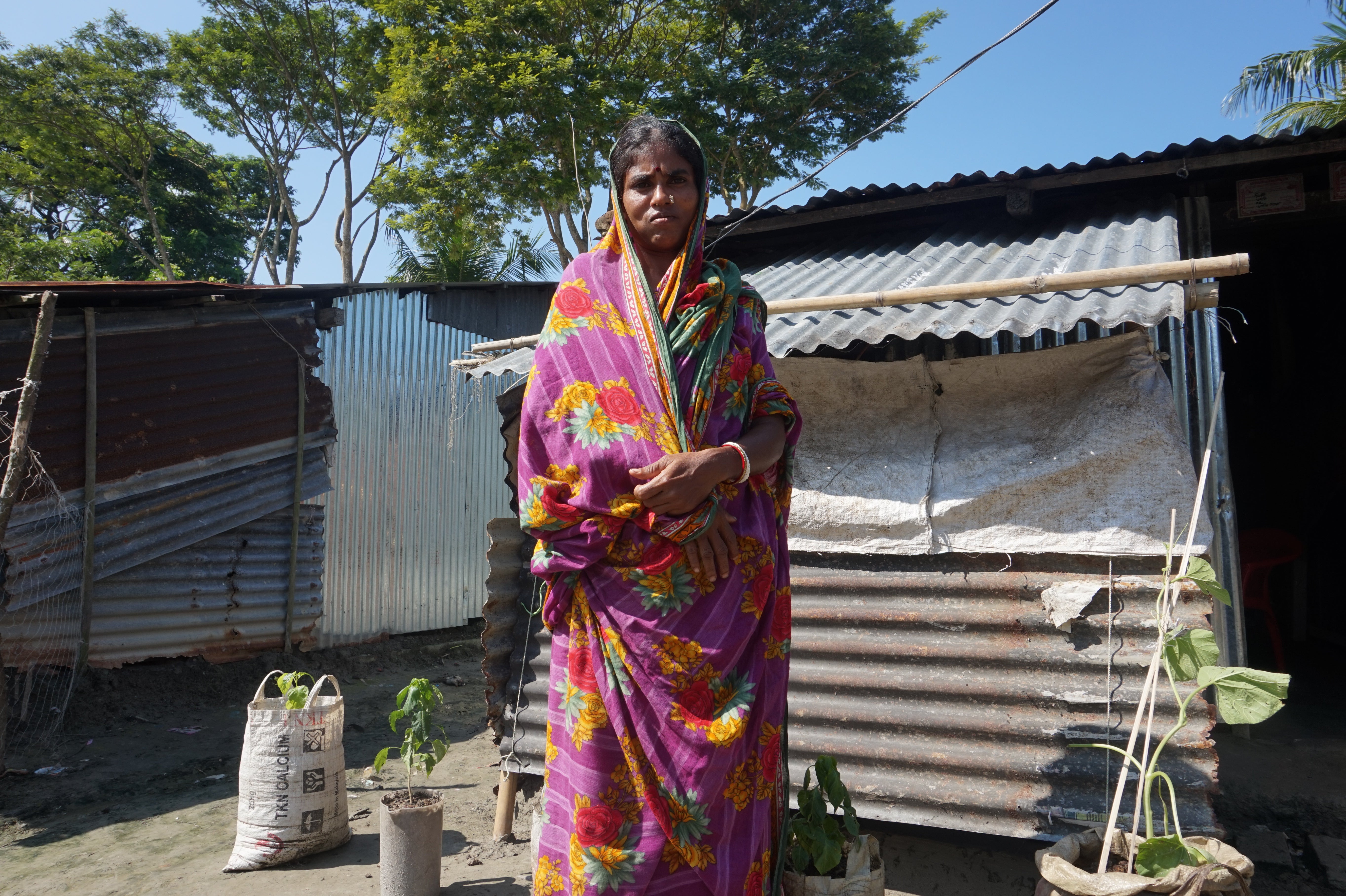Mothers battling coronavirus and the climate crisis can’t wait another year for action
I think of Lipi, a mother in Bangladesh whose 18-month-old son was almost washed away by a flood in her home

The words “climate emergency” prompt many of us to think of the same things. We imagine melting glaciers and burning forests – perhaps we hear the voice of David Attenborough.
For me, as a storm rages outside my Winchester window, I am reminded of another reality of the emergency: Lipi, a single mother of two from Bangladesh, who almost lost her youngest son due to extreme weather.
“I woke up and he was under the water. He was not breathing,” she explained, recalling the heart-stopping moment when she woke up to find that the local river had run so fast and high it nearly dragged her 18-month-old son away.
With everything that is going on in the news, there has been a snippet of hope on the climate front. US president-elect Joe Biden has promised to re-enter the Paris climate accord, which president Donald Trump has just left, on his first day in office in January.
But we need global action fast and more delays are likely. This week, five years on from the historic Paris agreement, world leaders were meant to meet in Glasgow at COP 26, the annual UN climate conference, to discuss climate action.
Now postponed until November 2021, these conversations have been put on hold. Unfortunately, the impacts of the climate crisis have not.
Lipi, who lives along the southern coast of Bangladesh, one of the most disaster-prone regions in the world, will never forget the night of the flood.
“In the dark, when we were sleeping, the water must have come into our home,” she said when I met her last year. “I felt in the water with my hands to grab him and I lifted him up out of the water.”
Thankfully, her son survived, but the experience meant she no longer felt safe in her own home.
“My home would be flooded every day during high tide,” Lipi said. “The water would rise into my home and through the front door. I could not manage, as all my plates, glasses, cutlery, would wash away.”
She was forced to move inland with her sons and start again with nothing.
Sadly, she is not alone. Lipi is just one of the 26 million people who flee their homes every year due to climate-related disasters. Of those 26m people, 80 per cent are women.
This year, the effects of the climate crisis in Bangladesh have not abated. The country saw unprecedented flooding during the monsoon season. Extreme rain left a third of the country inundated – the worst impacts seen in a decade and the longest-lasting flooding since 1988.
Combined with the impacts of Covid-19, many families have been pushed to breaking point.
In the year since I met Lipi, things were starting to look up. She had received training and materials to be able to grow her own vegetables, providing nutrition for her boys and income through selling surplus vegetables she had produced. Her eldest was working in a hotel and she had found employment as a domestic worker.
Then coronavirus entered the family’s lives. A nationwide lockdown forced Lipi and her son to stop working, removing the already thin safety net their jobs provided.
Lipi was able to receive emergency food packages containing basic ingredients from a local church organisation, Caritas Bangladesh, and cash support to purchase household necessities and protective face masks for her and her sons.
However, as extreme events, such as cyclones, floods, and droughts become more frequent and severe, and government resources are diverted to tackling the economic fallout from the pandemic, mothers like Lipi are left asking: “How can I survive and help save my family?”
They cannot wait another 12 months for action.
We have the power to urge our government here in the UK to pursue a green global recovery – to be a world leader in tackling the climate crisis today. They have the responsibility to ensure, for mothers like Lipi, that it becomes a reality.
Chloe Sideserf is the Regional Support Officer for Asia and the Middle East at CAFOD
Subscribe to Independent Premium to bookmark this article
Want to bookmark your favourite articles and stories to read or reference later? Start your Independent Premium subscription today.

Join our commenting forum
Join thought-provoking conversations, follow other Independent readers and see their replies